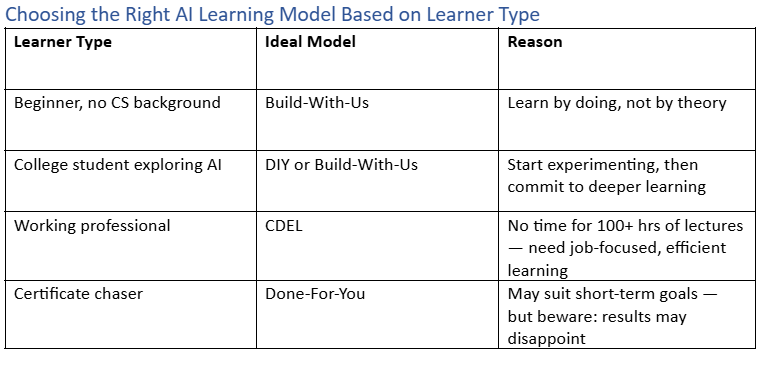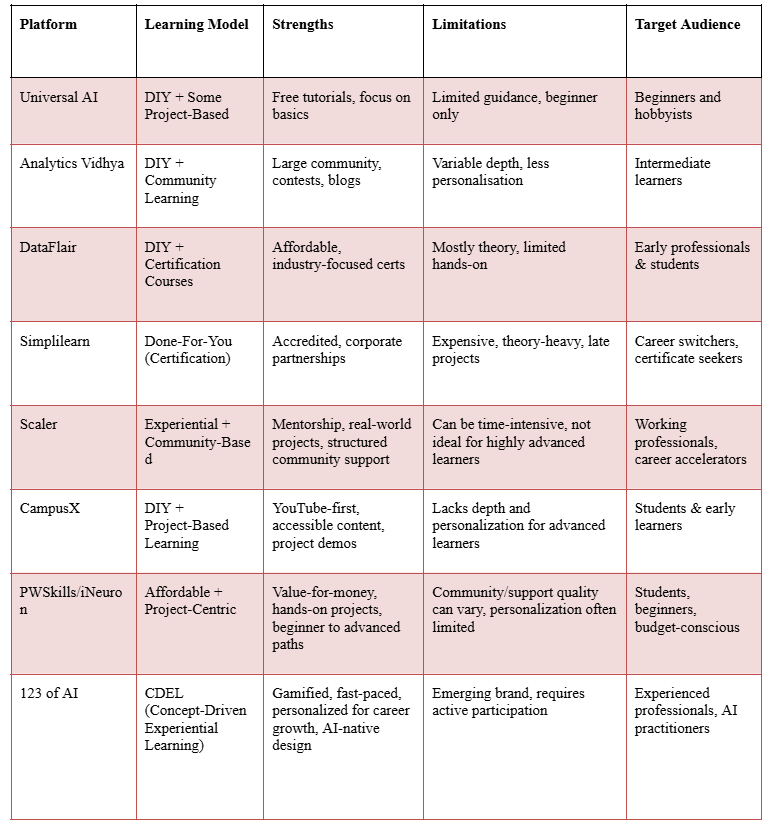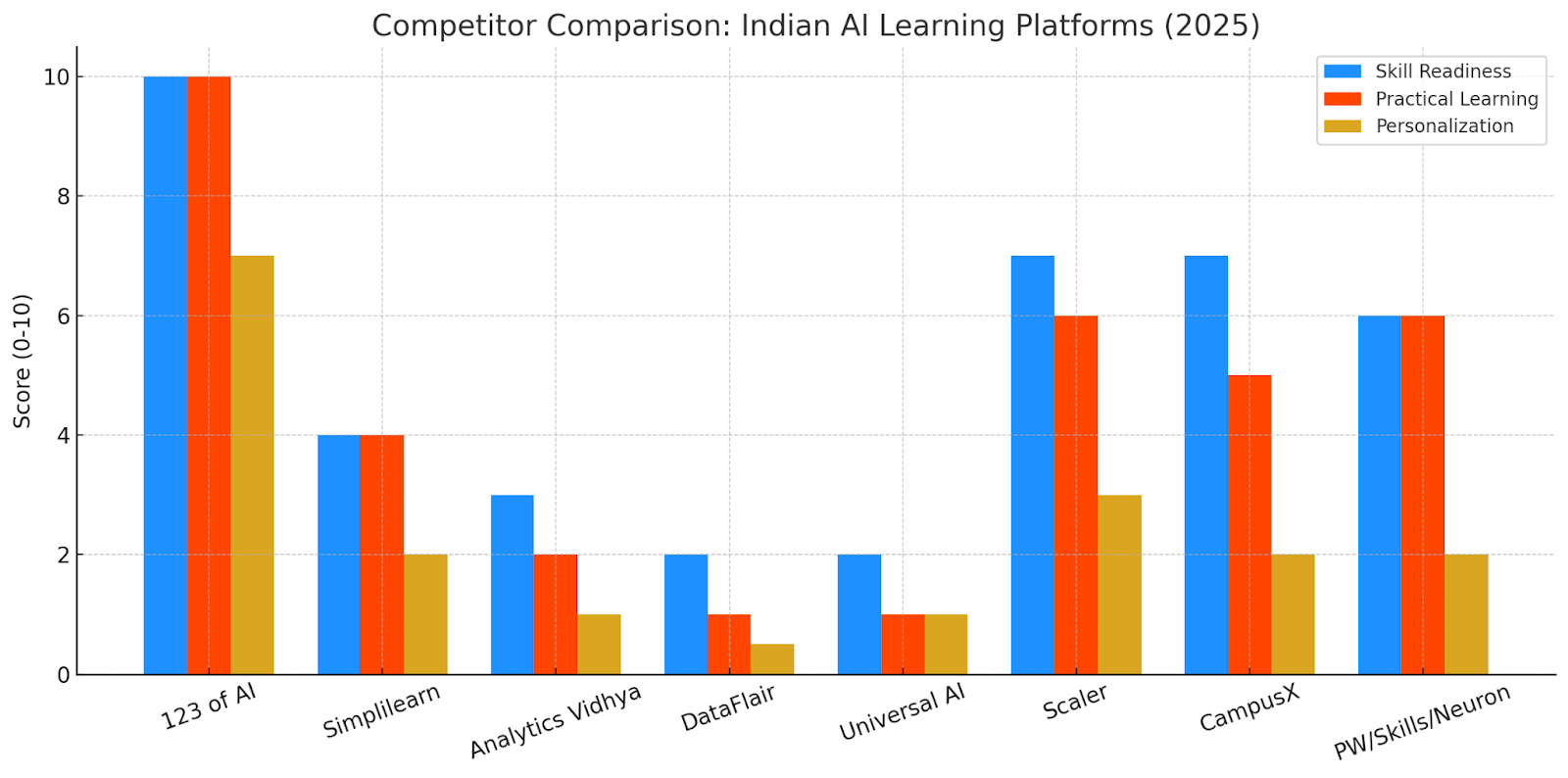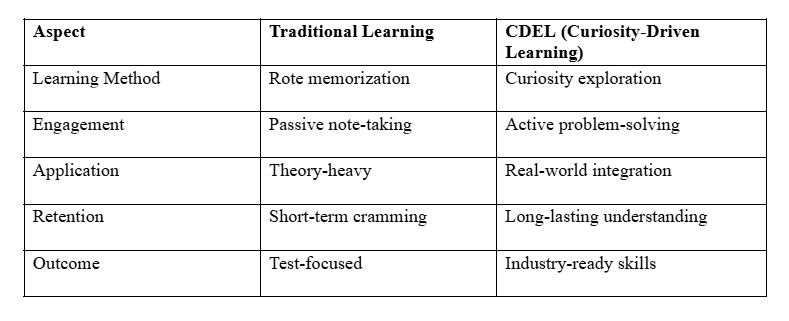Introduction
Artificial Intelligence is no longer a futuristic concept — it’s now a fundamental driver of workplace transformation across the globe. According to the World Economic Forum's Future of Jobs Report 2025, business leaders and employees alike are navigating a wave of unprecedented change fueled by technological advances, particularly in AI and Generative AI.
Over 60% of business leaders expect these technologies to significantly reshape their organizations within the next five years. This rapid evolution is creating both opportunity and anxiety. LinkedIn’s Work Change Report reveals that 7 in 10 executives believe the pace of change at work is accelerating, while nearly two thirds of professionals feel overwhelmed by how quickly their job roles are evolving.
In fact, the skills required for work are projected to change by 70% by 2030, emphasizing a pressing need for continuous learning and upskilling. India stands at a critical inflection point in this transformation. The country’s AI market is projected to grow at a CAGR of 20.2%, reaching US$ 7.8 billion by 2025, up from US$ 3.1 billion in 2020.
Simultaneously, AI is expected to play a central role in achieving education-related Sustainable Development Goals by 2030, helping tackle issues of equity, inclusion, and quality in learning. Despite a growing ecosystem of courses, bootcamps, and certifications, learners often face confusion in choosing the right path.
With thousands of options available, it's difficult to identify programs that effectively combine foundational knowledge, real-world skills, and job readiness. In this article, we decode the current AI learning landscape, analyze key players in India, and explain how 123ofAI is emerging as a disruptor — with a next-generation learning model that offers personalized pathways, project-based experiences, and industry-aligned mentorship.
AI Learning Models
AI learners today generally fall into one of three learning journeys:
1. Do-It-Yourself (DIY)
Examples: YouTube, Udemy, Coursera, edX
Pros:
- Affordable or free
- Flexible
- Huge content library
Cons:
- Low structure, motivation, personalisation, or feedback
- Completion rates for MOOCs hover around 3–6%
- Many courses are outdated or overly academic
- Limited real-world applicability
"You finish the video, but not the journey."
2. Done-For-You (Traditional Certificates & PG Programs)
Examples: UpGrad, Simplilearn, Great Learning, IIT/IIM Certifications
Pros:
- Branded certificates
- Structured syllabus
- Often feature live sessions and mentorship
Cons:
- Expensive (₹1.5–5 Lakhs)
- Certificates do not guarantee job readiness
- Curriculum often focuses on academic knowledge and is not personalised to career goals/timelines
- Projects come too late, if at all
3. Build-With-Us
Examples: Scaler, PWSkills/iNeuron, CampusX
Pros:
- Project-first and experiential
- Focus on real-world problem solving
- Active communities for doubt-solving and growth
- Suited for working professionals
Cons:
- Programs often >1 year, too academic/traditional
- Capstone projects come too late in the journey
- Too "tool"-centric rather than concept/decision-focused
- Gamification and personalization often lacking
4. CDEL (Concept-Driven Experiential Learning) — 123 of AI's Approach
Examples: 123 of AI
Pros:
- Gamified, experiential, and fast-paced
- Designed for experienced professionals
- Future-proof for AI-native coding era (where AI generates code)
- Concept and decision-making centric rather than tool-heavy
- Strong personalization and adaptive pacing
Cons:
- Newer model — still building widespread recognition
- Requires active engagement
These platforms are for learners who don’t just want knowledge — they want mastery.

Working professionals especially struggle with time, motivation, and abstract content. Platforms that expect them to spend months revisiting calculus or linear algebra often miss the mark — instead, learning needs to be personalized based on their experience, proficiency, and career growth trajectory. The future of AI learning needs more design thinking, system-level application, and decision-making training, not more formula memorisation.
What the Future Demands from AI Learning
AI Tools Are Getting Smarter — Learners Must Too
• Platforms like AutoML are reducing the need for hand-coded models.
• AI coding assistants (e.g., GitHub Copilot) now help developers code up to 55% faster, and
outperform many junior engineers.
• Competitive platforms like Codeforces and Kaggle now see bots ranking highly.
So what’s needed?
- Required technical depth in terms of frameworks and mental models, rather than simply 100 different algorithm
- AI system design
- Problem framing and decision-making
- Model deployment and performance thinking
Where Most Platforms Fall Short
- Passive learning and low engagement
- Delayed project-building (3–6 months in)
- Certificate-focused success, not real-world success
- Lack of personalisation, retention tools, or adaptivity
- Are “tool” centric
- Focus on making you understand 100 different algorithms
The result: Users may finish a course, but can’t solve a real AI problem end-to-end.
Competitor Comparison: Indian AI Learning Platforms (2025)
We analyzed some top AI learning platforms found during our research, comparing their strengths, limitations, and relevance for the modern AI learner.


Why 123 of AI is Built for AI Engineers 2.0
123 of AI doesn’t just teach AI—it transforms learners through its proprietary Curiosity Driven Effective Learning (CDEL) model.
What is CDEL?
CDEL is based on the science that curiosity fuels learning. It taps into the brain’s natural reward systems by challenging learners with real-world problems, interactive case studies, and active questioning.
Core Features of CDEL:
- Evidence-Based Retention: Using active recall, spaced repetition, and interleaving, QnA Lab ensures long-term retention of concepts.
- Personalized Learning Paths: Tailored journeys adjust to each learner’s goals and skill gaps, driven by AI.
- Experiential Learning: Hands-on projects and simulations, with real-world problem-solving as the foundation.
- Gamified Learning: Leaderboards, contests, and rewards boost motivation, engagement, and collaboration.
“Why wait 6 months for a portfolio project? Enter a hackathon in Week 4.” From the Foundations course to the AI Career Track, 123ofAI blends theory, projects, and community support with tools like QnALab—your always-on AI tutor for real-time code, logic, and concept help.
CDEL vs Traditional Learning

Backed by research from Kolb (1984), Gruber et al. (2014), and Freeman et al. (2014), CDEL is the brain-friendly way to learn AI—made accessible and scalable through QnA Lab. “In the age of AI coders, creativity and decision-making win. That’s what we train.”
Conclusion:
What Our Users Are Saying
Jinka Sai Sagar says, “It covers wide range of questions in each topics very well. It also maintains different level of difficulty in questions.”
Neeraj shares, “Wherever you are on your AI journey, 123ofAI is here to help you grow. If you're just getting started, the detailed courses will give you a strong foundation. You can get ready for interviews with the LeetCode-style interface, which boosts your problem-solving skills. For those looking to take their expertise to the next level, 123ofAI offers a variety of practice questions to enhance your AI skills. Their platform creates a personalized learning path based on your strengths and weaknesses ensuring you have the best learning experience possible.”
Why Learners Love QnA Lab
At QnA Lab, we focus on not just teaching concepts but transforming how learners engage with them — through curated questions, interview frameworks, and real-world depth. Here’s what the community has to say:
"I really like the idea of collecting existing best resources and curating them for the students. The topics are already very comprehensive with lots of questions and exercises. The quizzes are really nice and test the conceptual knowledge well. The interview questions framework is cool — I really loved it."
— Chandradeep Pokhariya
AI Researcher, Brown University
"It covers a wide range of questions in each topic very well. It also maintains different levels of difficulty in the questions."
— Dr. Sai Sagar
Staff Research Scientist, Qualcomm
The AI landscape is changing fast. Not every learning model is built for the demands of tomorrow. Whether you're a working professional, a college student, or a domain expert transitioning into AI, the you're a working professional, a college student, or a domain expert transitioning into AI ,The Curiosity Driven Learning model is proving to be the most relevant and effective.
123 of AI is more than a platform — it’s a launchpad for the AI Engineer 2.0.
Latest Articles
All Articles
Why Curiosity Driven Effective Learning (CDEL) Is the Superior Method for Upskilling in Machine Learning
Discover why Curiosity Driven Effective Learning (CDEL) is revolutionising machine learning upskilling to foster deeper understanding and long-term retention, essential for mastering ML and excelling in technical interviews.


Understanding the “Why”: A Practical Guide to Model Explainability
Ever wondered why your AI model makes certain predictions? From LIME and SHAP to Grad-CAM and Attention Maps, this guide demystifies model explainability—helping you uncover both local and global insights for transparent, trustworthy AI. 🚀


Local vs. Global Explainability: Why Both Matter for Interpreting Your ML Models
Unlock AI transparency with tools like LIME and SHAP that deliver clear, personalized insights. Boost trust and innovation across healthcare, finance, and more.

